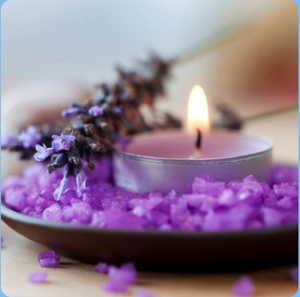sleep – read why it is more important than you may think
Sleep requires us to be in a deep state of relaxation, which is not easily attainable – try to get started with some of the following suggestions and see where you feel comfortable with, take one step at a time towards better sleep and overall health.
Once you start sleeping more, you will have far more grounded energy and a greater awareness of all, you can shift in your home and life to help you to create more of everything you want … but it starts with sleep!
• Decrease stimulation – avoid bright lights before bedtime at least one hour before bedtime (optimally two), this includes smartphones, laptop screens, televisions and tablets. Studies have found that constant exposure to bright lights at night can suppress melatonin levels, which your body relies on to determine the time of day. Other studies show that exposing yourself to too much light at night can trick your body into thinking that it’s day time, throwing off your internal clock.
• Stop drinking energizing drinks like coffee, cacao, tea or energy potions in the afternoon, caffeine can stay in your body 8-14 hours after consuming it, switch to water, herbal tea, and herbal coffee substitutes. Avoid excessive alcohol close to bedtime, it causes an increase in body temperature and hinders your ability to stay asleep.
• Consume sleep – promoting food or drinks: magnesium is great for sleep, either stir magnesium powder in a cup of hot water or eat a light dinner with high-quality proteins and complex carbohydrates. Try magnesium containing food like whole wheat products, spinach, kohlrabi, cashews, pumkin seeds and have a handful of berries for dessert.
• Some more magnesium you can get from Epsom salt, put ½ cup of it and a few drops of an essential oil like lavender in the bathtub and take a relaxing bath once in a while.
• Associate your bed with sleep and go to bed around the same time every night. Be consistent with your bedtime, it’s key for your internal clock. Our bodies are built for a 10 p.m. — 6 a.m. sleep pattern. The most regenerative form of sleep occurs between 10 p.m. and 2 a.m. A break on special occasions is totally ok.
• Check your mattress, it can be an unrecognized source of poor sleep. Most mattresses should be changed after seven years.
• Keep the temperature in your bedroom at around 17–21°C (62–70 F), studies have shown that’s the temperature what works best for sleeping. Also our core temperature drops at night so our brain can go to sleep. A warm room can inhibit this process.
• Exercise regularly – study after study has shown that those who exercise regularly go to sleep easier and sleep more soundly than their sedentary friends. In fact, a very recent study has dispelled the myth about exercising too close to bedtime. In this study, even those who exercised close to bedtime slept better than those who did not.
Sleeping Positions
You wouldnt believe it, but there are even studies about sleeping positions, read here what is the best and what is the the worst position to sleep in:
On the stomach – avoid at all! your lower back is compressed all night long, and your head and neck are invariably twisting to one or the other side in a fairly extreme manner
On the side with one leg hiked up higher than the other – also to be avoided! twists and torques the pelvis for as long as you maintain the shape
On the back – great! both legs should be straight; there’s a tendency for one knee to slide up and out, this should be avoided, as it can twist the pelvis
On your side, with the legs together – best for back and body! the least amount of stress is placed upon the body when sleeping this way; your pelvis is well situated, and this variation on the fetal position is both calming and comforting for your nervous system; placing a pillow between the legs is an excellent complement to this position
create a better environment where you can truly enjoy and reset
• clean bedroom – stuff laying around takes your mind of the importance of getting rest
• create an ambience – dim the lights or light a candle, make it a routine every night before going to bed
• freshen up – air the room about 15 minutes before going to bed, your head will be all clear with good oxygen in the air
• try essential oils – lavender, chamomile, rose or frankincense are promoting your relaxation either on your feet or on a pillow
recipe of the month – spicy pumpkin soup
Ingredients
• 3 cups of orange pumpkin
• 1 cup coconut milk
• salt, turmeric, cayenne pepper, curry
• 3-4 cups of water
optional: roast an onion in the pot before adding everything else,
add carrots, sweet potatoes and / or a few slices of ginger
Directions
• clean and cut the pumpkin into pieces and cook with peel in a big pot (try to use less water first because later you will add the coconut milk and it might be to watery all together)
• add the optional veggies, the spices and try other spices you like
• after about 10 minutes of boiling add the coconut milk and keep cooking
• check with a fork if the pumpkin is soft, then use an immersion blender to slowly blend until everything is creamy
• decide on your own how soft or spicy you like it, the coconut milk makes the soup sweet and soft, by adding more ginger and cayenne pepper you’ll give it a spicy touch (I love that!)
• sprinkle a few drops of pumpkin oil over the plate and decorate it with a stalk of parsley
ENJOY!


